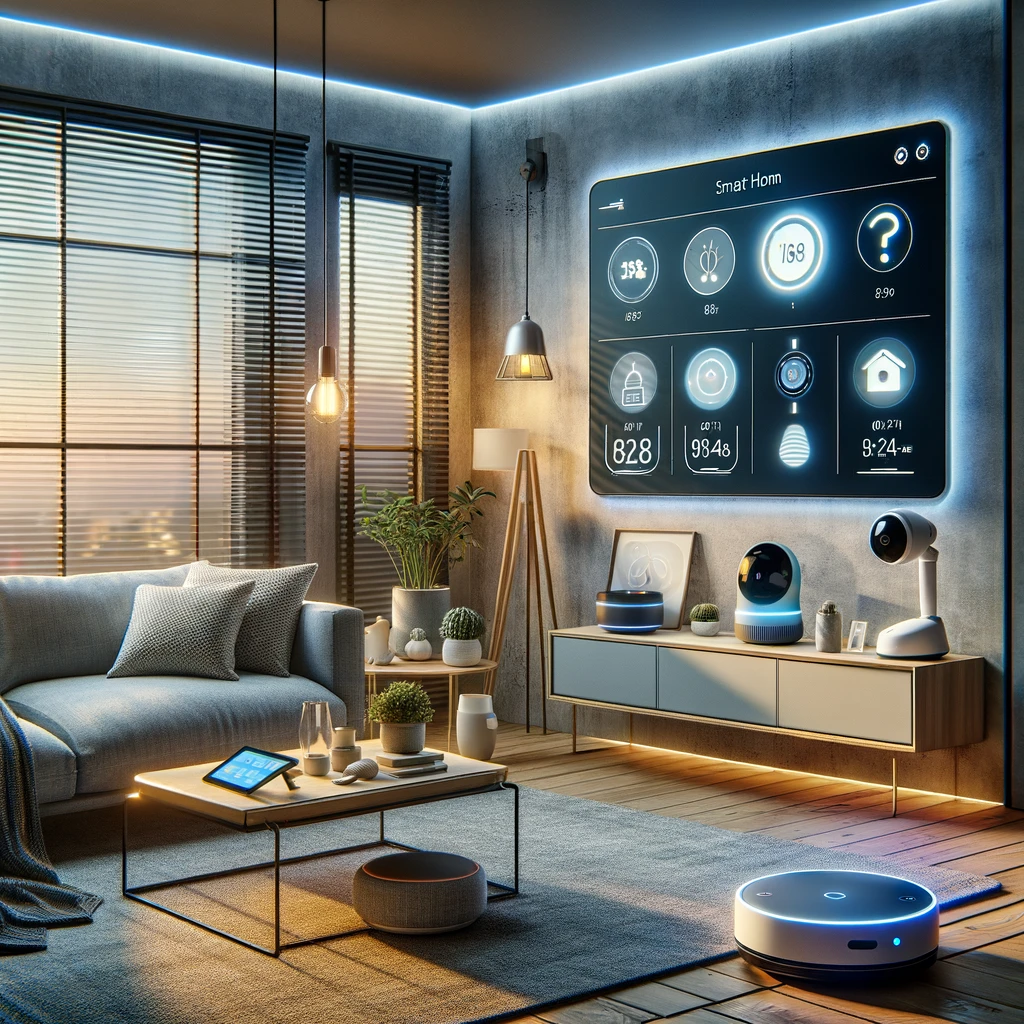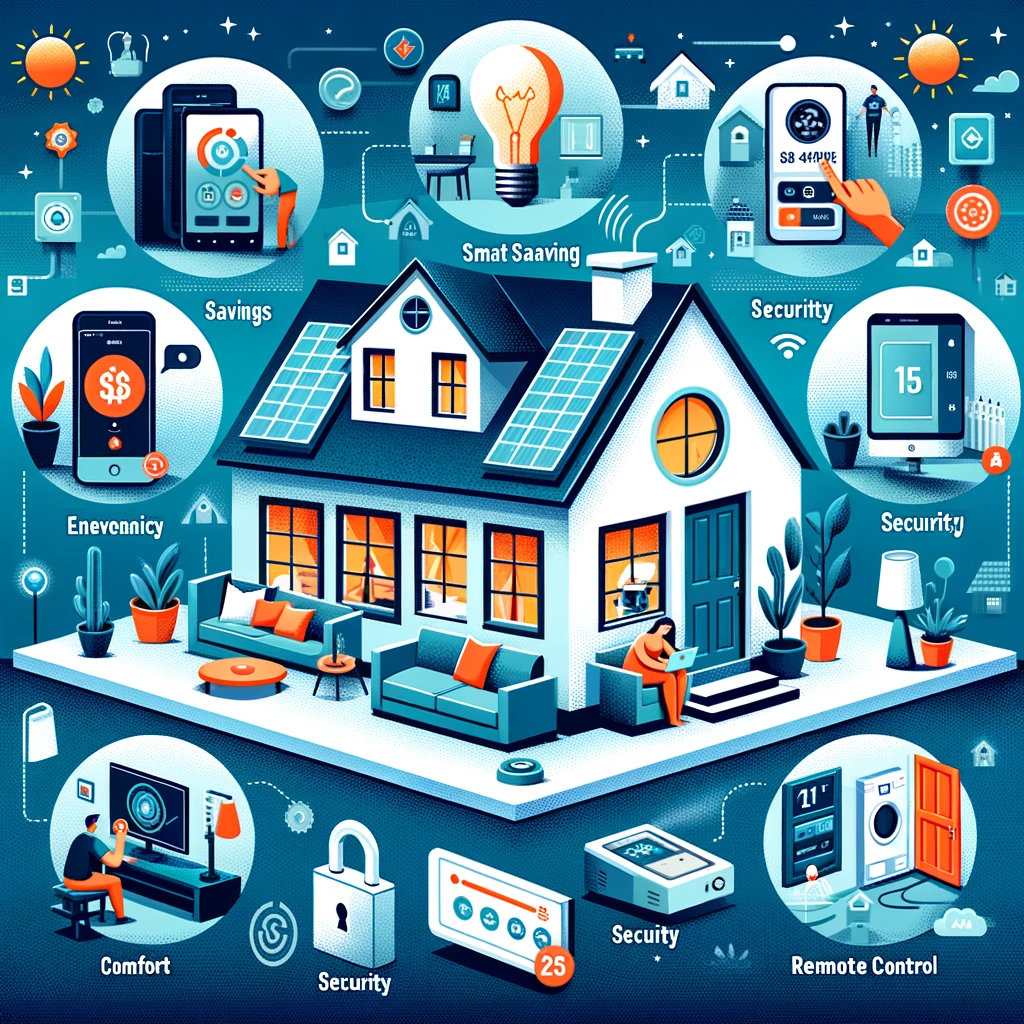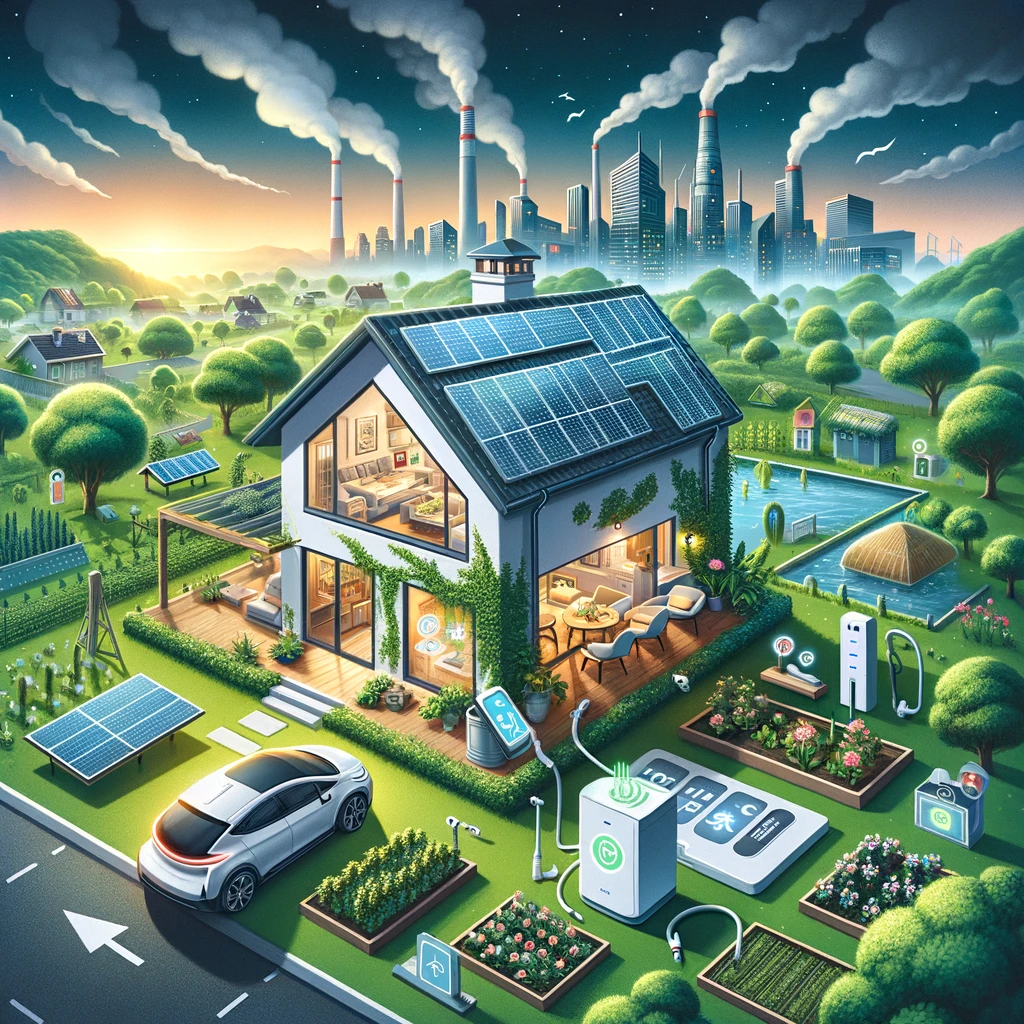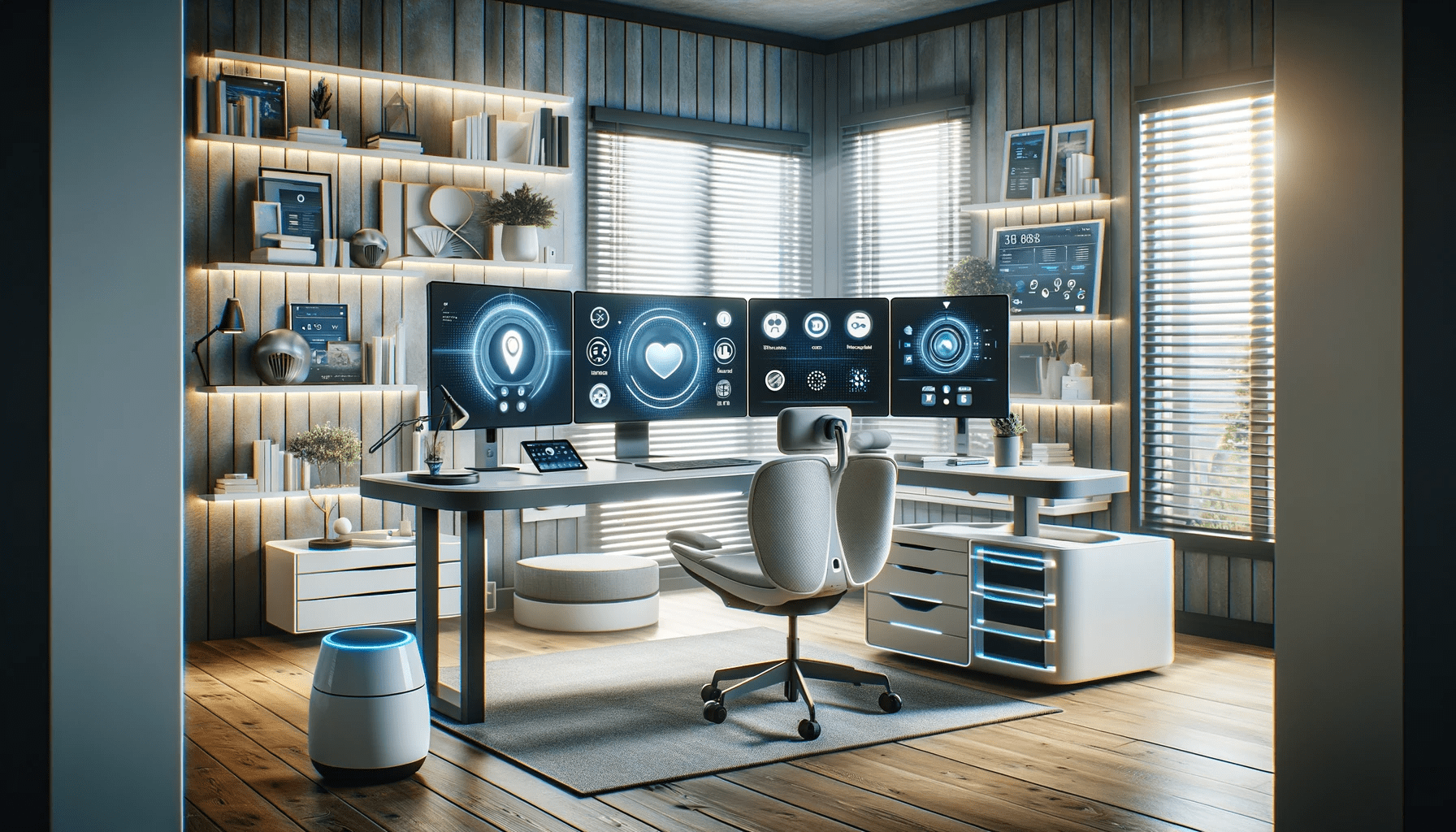People increasingly choose smart homes for their enhanced control and efficiency. Smart homes, evolving naturally from traditional homes, improve functionality by integrating connectivity. This connectivity enables automation of everyday tasks like adjusting temperature, managing lighting, and ensuring security, all accessible via smartphones or voice commands. You can also read our article titled What is a Smart Home?

Living in a smart home means waking up to automated routines, like lights turning on and thermostats adjusting, enhancing convenience and energy efficiency. Smart appliances, from thermostats to vacuums, adjust intelligently to your habits and environment, saving time and energy. With the ability to remotely monitor and control various aspects, smart homes offer not just convenience but also enhanced security, energy savings, and a more comfortable lifestyle. These interconnected systems, though complex, present a future of sophisticated, computer-like homes, redefining our living experience with intelligence and ease.
What are 5 Reasons for a Smart House?
Smart homes offer several compelling advantages. Firstly, they provide enhanced security, allowing homeowners to remotely monitor their property with devices like cameras and smart locks, and receive alerts about any potential threats. Secondly, smart homes significantly reduce energy consumption through automated and efficient control of heating, cooling, and lighting, leading to lower utility bills. Thirdly, they offer unparalleled convenience, enabling control of various household functions remotely via smartphones or voice commands. Fourthly, smart homes are customizable to individual preferences, adjusting settings like lighting and temperature automatically. Finally, they provide comfort and peace of mind, ensuring a safe, efficient, and easy-to-manage living environment. These features collectively make smart homes an increasingly essential part of modern living.
What are the Advantages of a Smart Home?
Smart home technology offers several key advantages. Firstly, it provides enhanced security and safety through devices like surveillance cameras, smart locks, and motion detectors, allowing for remote monitoring and immediate alerts of any unusual activity. Secondly, it offers remarkable convenience, enabling users to control various home functions like lighting, temperature, and appliances remotely via smartphone apps or voice commands. Thirdly, smart homes are highly energy-efficient, with devices like smart thermostats and lighting systems adjusting settings to optimize energy usage, leading to reduced utility bills.

Additionally, smart homes offer customization and flexibility, allowing users to tailor settings to their personal preferences and easily integrate new devices. Finally, these systems provide valuable insights into home management, helping users track and adjust their energy consumption and lifestyle habits for a more efficient and comfortable living environment. Overall, smart homes represent a significant advancement in home automation, blending convenience, security, and energy efficiency.
Why are Smart Homes the Future?
Smart homes are the future because they harness Artificial Intelligence (AI) to adapt and personalize user experiences, creating a seamless and efficient living environment. These homes go beyond basic functionalities like voice-controlled lighting, integrating AI at their core for complete home automation. The rapid increase in smart home adoption, with millions of homes already transformed, highlights their growing popularity. Smart homes offer unparalleled interconnectivity, allowing users to control all home devices from a single interface, greatly simplifying home management. They bring flexibility in accommodating new technologies, significantly enhancing home security with advanced systems like motion sensors and surveillance cameras.
Furthermore, smart homes are energy-efficient, with devices like smart thermostats and appliances automatically adjusting to energy needs, leading to reduced consumption and lower bills. They also improve appliance functionality, making daily tasks easier and more enjoyable. With real-time monitoring and control, they provide peace of mind, ensuring safety and security. Finally, smart homes contribute to healthier living through systems like Delos’ DARWIN that optimize air quality and lighting. The expected continued growth and technological advancements in the smart home market, including developments like the Matter standard for easier integration, underscore their role as a critical component of future living.
How Do Smart Homes Help the Environment?
Smart homes significantly contribute to environmental protection by optimizing energy usage, managing water resources efficiently, reducing waste, and improving indoor air quality. These homes utilize energy-efficient LED lighting with features like occupancy sensors and natural light detection to minimize energy wastage. Smart thermostats adapt to occupancy patterns, reducing unnecessary heating and cooling, thereby lowering energy consumption and carbon emissions. In water management, smart irrigation systems and leak detection sensors conserve water and prevent wastage. Smart appliances help reduce food and resource waste by adjusting operations based on specific needs.

Air quality sensors in smart homes monitor pollutants, ensuring healthier indoor environments. Additionally, these systems offer sustainable lighting options and waste management practices, contributing to a circular economy. Smart homes also support sustainable transportation by integrating electric vehicle charging infrastructure. Remote energy management allows homeowners to monitor and adjust energy use, leading to significant savings and reduced environmental impact. Finally, smart homes collect data for conservation efforts, enabling residents to make informed decisions for a more sustainable lifestyle. In essence, smart homes are a key solution for achieving eco-friendly living, aligning with global efforts to mitigate climate change and reduce carbon footprints.
Are Smart Homes Worth It?
Smart homes, increasingly popular due to technological advancements, offer numerous benefits that make them a worthwhile investment for many. Firstly, they enhance convenience and accessibility, especially for the elderly or those with disabilities, by allowing control of various home functions like lighting, temperature, and security remotely via smartphones or voice commands. These systems also enhance home security, providing alerts and surveillance options. Smart home technology is not just about convenience but also about efficiency, leading to significant energy and cost savings. Features like smart thermostats and lighting adjust automatically for optimal energy use, potentially reducing utility bills. Additionally, smart homes can increase property value and may lead to reduced insurance premiums due to improved security features.
However, smart homes come with challenges. Initial setup costs can be high, and there may be a learning curve for those not familiar with technology. Security risks exist, as these devices are connected to networks and can be vulnerable to hacking. Maintenance requires continuous updates and monitoring. Furthermore, reliance on internet and power means that outages can disrupt the functionality of smart home systems. Despite these drawbacks, the long-term benefits of efficiency, convenience, and security make smart homes an appealing choice for many, offering a modern, connected, and more sustainable living experience.










